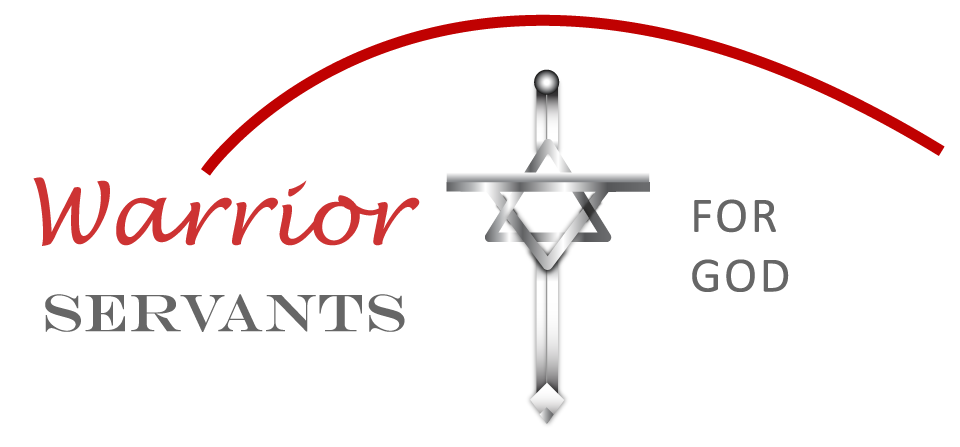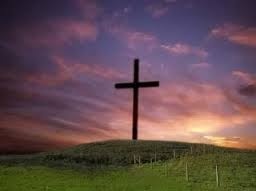THE FIRST TO ARRIVE, AND THE LAST TO LEAVE
"From the days of John the Baptist, the kingdom of heaven suffers violence, and the violent men take it by force." - MATTHEW 11:12
Pride is a preemptive strike against the title deed to our dependence on God. Both Adam and Lucifer show us that "pride" is the original, the first, the preemtory sin. For what else is pride other than the "exaltation of self" above the knowledge, above the power, above the love, above the wisdom, above the truth and above the sovereignty of God. What, besides pride, is it that allowed Adam to regard himself equal to and worthy of the high knowledge of none other than "God Himself"? Or to, in brash defiance, eat of the Tree of the Knowledge of Good and Evil? What else, other than pride, made Lucifer exalt himself to the sovereignty of God, and pursue the worship of himself by all of creation?
For both Adam and Lucifer, the entrance of sin began with the first dawn of pride. Whereas our dependence on God declares our jurisdictional "position" in relation to God, and whist it acknowledges and exalts God as most high and sovereign, pride, on the other hand, is a forceful assault on the sovereignty of God in our lives. And with it, it is also a violent attack on all "the gold and silver" that such dependence upon God would lay claim to in our lives (Joshua 6:19). It has massive consequences for all of our personal stories. And, for this reason, God guards jealousy what is good for all of us. Our dependence on God represents precious land whose highly-prized title deed was purchased outright at the highest cost in blood. Pride is nothing more, then, than the indefensible mutiny of a hostile takeover, and an unlawful occupying of holy land which, in its entirety, sovereignly belongs to the domain and manifest presence of God as our landlord.
In 2 Corinthians 10:5, in His ever loving demonstration of grace, God counsels us in His irrepressible wisdom, that we are to cast down EVERY argument and pretension that exalts itself against the knowledge of God. For it is in these arguments and pretensions that the root of pride births. And when these arguments and pretensions take root, therein begins the very establishment of the many Chinese walls we erect between ourselves and God. These walls are none other than the fig leaf Adam raised to conceal both his individual as well as man's universal shame. In the establishment of these Chinese walls originates nothing other than the construct and edifice of strongholds. These are those belief systems, and thoughts, and arguments, and pretensions in us all that exalt themselves above the knowledge of God. For as we think in our hearts, so it is that we are (Proverbs 23:7).
These thoughts and arguments are those principalities and powers of darkness mentioned in Ephesians 6, or the Jericho walls discussed in Joshua 6, that defiantly present as man's rebellious independence from God in all of our lives. These are the bastions of pride by which we separate ourselves from the manifest presence of God. And it is against these strongholds that, as with Joshua, being a type of Jesus, that Jeshua Himself violently prevails in order to take all that which personally belongs to Jesus from behind these Jericho's walls back to whom it belongs. "All that the Father has given Me will come to Me" (John 6:37). He is not only our Saviour. He is the indwelling one who conforms us to Himself (Hebrews 2:10; Romans 8:28-29). And on the seventh day (God's complete and perfect work)), at the sound of the trumpet (the shout of God's victory as we return to the voice of the Lord (Deuteronomy 30:2)), the walls will collapse (Joshua 6:16), and its king (all vain pretension) and his mighty men of valour (every vain argument) will be destroyed with the edge of the sword (the Spirit filled Word).
Within each of us resides the promised land of Canaan, the land of milk and honey, the Garden of Eden, the kingdom of heaven (Luke 17:21-22). And it is unto this kingdom that God speaks in Matthew 11:12 when He says that "From the days of John the Baptist, the kingdom of heaven suffers violence, and the violent men take it by force." He is referring to the violence of man's own pride upon the kingdom of heaven within us. These men are the unregenerated "old men" (Colossians 3:9-10) that need to give way to the new creation who is "being renewed to a true knowledge according to the image of the One who created him" (2 Cor 5:17). WE, alone, are those very men who encroach upon the borders and upon the occupation by God of the land of Canaan within us. We trespass on royal and holy ground. We are to take our sandles off, just like Moses. But instead, we take custody of that to which we have no rights of ownership. We seize and capture territory that belongs to another by the violence of pride, the very father of all sin. We take what is not ours to take, by pretension and argument, by the transgression and violence of pride.
The kingdom of heaven suffered violence when Adam took, by force of wilful independence from God, fruit that was not his to possess. To eat of the Tree of the Knowledge of Good and Evil was emphatically "forbidden". In that it was forbidden, this plainly tells us we are not to trespass upon this land. This itself tells us that self-dependence or independence is a title deed that does not belong to us. Hence why sin is forbidden. For what more is sin other than a stronghold against the knowledge of God and a defiant expression of independence from God. God's labour of love is to systematically tear down these Jericho walls with the perfect display of His sovereign love and His matchless power. This is why pride is despised above all things by God. "The LORD Almighty has a day in store for all the proud and lofty, for all that is exalted (and they will be humbled)" (Isaiah 2:12).
In 2 Thessalonians 2:3-4, God reveals the essence of His counter argument to man's folly of pride, where He says "unless the falling away (of pride) comes first, and the man of sin is revealed (self-dependence), ... who opposes and exalts himself above all that is called God (Adam and every man thereafter) or that is worshiped, so that he sits as God in the temple of God, showing himself that he is is God (Lucifer and any idol), the day of the coming of the Lord will not come (salvation).
We are the temple of God. We are His creation. We are that place He seeks to lay down His weary head (Matthew 8:20). Like Joshua before us, we are to enter into the Promised Land (enter into salvation). Once saved, once the walls come down, we are to take Jericho by the combined might of God and the self-determination of human endeavour. God ordered Joshua, and all those he led, to destroy every man, woman and child in Jericho. Whilst this seems extreme, it is also metaphorical, where every man, woman and child refers to and represents those ingredients necessary and required to procreate and give birth to the offspring of sin and pride. It takes a man and a woman to produce a child. So we are to utterly destroy everything that can produce sin or independence from God in our hearts and lives. Every thought. And every argument. And every offspring. "A little leaven leavens the whole lump" (Galatians 5:9). There can be no yeast remaining within us to produce that which establishes Jericho walls between us and God.
So the primary purpose of taking this territory back by force, is that we are to GIVE BACK to Him what is His. It's no coincidence that it was "Joshua" who entered the promised land, nor was it coincidental that by faith in God, that God Himself, without man raising a single finger, destroyed the impressive walls of Jericho. Salvation is God's doing alone. Joshua comes from the Hebrew name יְהוֹשֻׁעַ (Yehoshu'a) meaning "YAHWEH is salvation". Moses represents the Law. We cannot be saved by the law. The law merely points to He who is able to save. That is why Moses couldn't enter the promised land. Simply because he represented that thing which cannot of itself save, but can only point to the salvation. That's why he led the people (the law leads us) to the promised land, and at the border pointed to the promised land, but could not himself cross into it. Only Joshua, the type of Jesus, can take us from the wilderness of pride and independence into the promised land of salvation and dependence on God.
For what else is the call and confession of faith by man unto the salvation in Christ other than the declaration of repentance from self-dependence unto acknowledging God alone as sovereign and Almighty. And so, with our salvation, begins the long and narrow walk back to full and complete dependence on God. The removal of all pride, being all that which keeps us from total and complete dependence upon God, is the heavenly process of what it means to "take up our cross". This is why the walk to the promised land symbolizes our own long walk of pilgrimage back to the Garden of Eden prior to the fall. And this is why it took the Israelites so long to get to Canaan. Not because of the traveling distance, but because of the lengthy process of letting go the stubbornness (strongholds) of their arguments and pretension and pride and every thought that exalted itself against the knowledge of God unto Israel's restoration unto complete dependence upon Yahweh.
Joshua is portrayed as a type of Christ (Hebrews 4:8) in the following ways: (1) In the name common to both; (2) Joshua brings the people into the possession of the Promised Land, as Jesus brings his people to the heavenly Canaan; (3) Joshua succeeded Moses, so the Gospel succeeds the Law; (4) and as Joshua defeated Jericho, Jesus tears down the Jericho walls of sin and pride so that God can get to the "gold and silver" behind the Jericho walls, being our hearts and souls. And until every last remaining stronghold is torn away between us and God, who can honestly say that there lies no remnant of pride in their lives? Whilst the faintest echo of any argument or pretension that exalts itself against the knowledge of God exists, we remain speckled with the dust of pride.
Only until every last vestige of self-dependence is dismantled and unseated, and only when we have returned to our original condition of complete dependence on God, will the last remnants of pride depart from us. As with the Israelites, we can make this journey as long as we want to, or as short as it needfully takes. But we are made of dust. Dust is the substance of the land. We are His land, and upon our land, no part shall be occupied by anything that exalts itself against the knowledge and the Presence of God. We need to take back with violence (die to self, and die to sin) that which exalts itself against the knowledge, and the power, and the love, and the wisdom of God. We need to restore ourselves to our original place and position in Creation, and restore God to where He has always belonged, and always will belong, in both our hearts and our minds. God is to be sovereign and supreme, first and foremost.
That is why pride is both the first sin to arrive, and the last to leave. And on that day, when crucifixion and circumcision have had their day, and when resurrection has its day in our own lives, it is on that day that we shall all shout together, like our Jesus before us, "It is done!"
- To God be all the glory. Forever and ever. amen and amen.
- Blessings, Wayne Biehn


